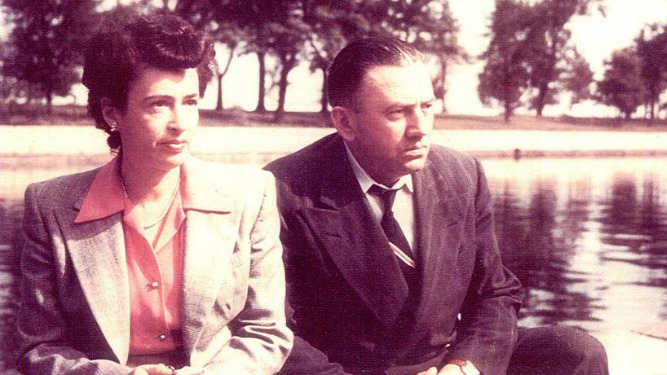I have just finished reading Escape Through the Pyrenees, the memoirs of Lisa Fittko. It is an extraordinary account of a young couple, Lisa and her husband, Hans Fittko, escorting many who fled Nazi Germany to Spain from France through a secret mountain path. The couple was then based in Banyuls-sur-Mer in France, at the foothills of the Pyrenees, just across the border with Spain.
Among the first to be escorted by Lisa was Walter Benjamin, the great German philosopher and critic, a Jew. She gives us a brief, but stunning, portrait of Benjamin, and of herself and her husband.
An anti-Fascist activist (and a Jew), Lisa had fled Berlin. In 1940, she was interned in a French camp for women in Gurs in south France for being an “enemy alien”. The irony of being imprisoned for opposing the Nazis in a state that was opposing the Nazis was brutal and death, disease and hunger were everywhere.
Lisa eventually reached Banyuls, where the “Emerescue” (Emergency Rescue Committee) project was set up and the rescue route was provided by the mayor, a Socialist. It was a smugglers’ route originally. Lisa and Hans helped possibly hundreds to safety.
Like Hans, Lisa had been an underground resistance fighter and on the run since 1933. The couple themselves were waiting their turn to escape. Hans was not a Jew.
What is perhaps more extraordinary than their feat is how they felt about it. Their work needed extreme intelligence, utmost caution, constant networking, clever manipulation of the authorities and even sweet talking, all in the face of death. They had no food, no money, no address and no identity: their papers were either false or did not exist. After they had left Banyuls, at Cassis, Lisa discovered that being in the sea, under water, made her feel less hungry, less weak.
Their political training helped. This young couple, in love with each other, kept saving lives, and, above everything, appeared joyous. In want of a better word, almost brutally so.
Perhaps the banal — although the eminent political theorist, Hannah Arendt, who had been a Gurs inmate with Lisa, would warn of “the banality of evil” — helped with its familiarity in a mad world: “la pagaille”, the total chaos. When entering the Gurs camp, Lisa’s friend, Paulette, had insisted on carrying with her a lipstick.
Another clue lay in what Hans had told “Old Benjamin”. Benjamin had quit smoking when he and Hans were at a French camp together and was suffering from withdrawal symptoms. Hans had told him that it was not the right time, concerned because Benjamin was incapable of coping with the “adversities of the external world, which, like wolves, appear at times”, in his own words. Hans had tried to explain to Benjamin that “to ride out crises and not lose one’s mind, this basic rule was vital: Always look for the positive side, not at the existing hardships.”
Perhaps in his own way Benjamin followed that. Although only 48, he was very ill with a severe heart problem. But he walked across the difficult mountain terrain with Lisa, bringing with him a heavy leather briefcase that contained his last manuscript, more important than his life, he said. His aim was to reach that to safety, so that the Gestapo could not lay its hands on it. He walked for hours at his own pace, resting when he wanted to. “One must not completely overspend one’s strength,” he said. His breathing was laboured, but he did not complain. He even drank from a dirty pool to keep himself going. He had to reach the other side.
Lisa left after seeing him walking down the slope towards Spain, the azure sea meeting the majestic mountains. One day later, Benjamin committed suicide. His friends found some comfort believing the manuscript had reached safe hands. Decades later, Lisa would come to know that it was lost.
But he had had a beautiful trip, full of laughter and conversation. And he had carried his briefcase across the border.










